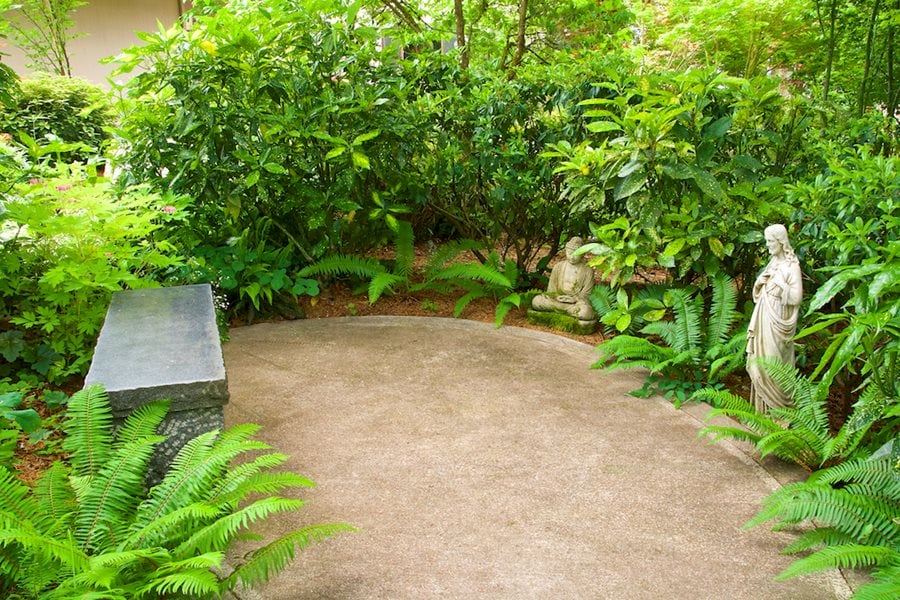
Harmony Unveiled: Tranquil Zen Garden Design
Embarking on the journey of designing a Zen garden is a poetic exploration of harmony and serenity. Rooted in ancient Japanese philosophy, Zen gardens are an embodiment of simplicity, balance, and a deep connection with nature. Let’s delve into the elements that define Zen garden design, guiding you on a path to create your own tranquil sanctuary.
Philosophy of Zen Gardens:
At the heart of Zen garden design lies a philosophy that embraces minimalism and mindfulness. These gardens are conceived as places for meditation and contemplation, providing a visual representation of balance and tranquility. The meticulous arrangement of elements in Zen gardens reflects a profound connection with nature and the search for inner peace.
PlayAsSustentable.com: Your Zen Garden Companion:
For comprehensive guidance and inspiration on Zen garden design, visit PlayAsSustentable.com. Navigate through a collection of articles, guides, and expert advice to help you embark on your Zen garden journey. Explore sustainable practices that align with the essence of Zen philosophy, creating a garden that resonates with nature and tranquility.
Elements of Zen Garden Design:
Zen gardens are characterized by specific elements carefully chosen to evoke a sense of calm and balance. Gravel or sand often serves as the foundation, symbolizing flowing water. Large rocks strategically placed represent islands or mountains, while carefully pruned trees and plants contribute to the overall simplicity and harmony.
Zen Aesthetics with Minimalist Landscaping:
Minimalism is a defining feature of Zen garden aesthetics. Strive for simplicity in landscaping, favoring clean lines and uncluttered spaces. Limit the variety of plants and materials, focusing on the careful arrangement of a select few elements. The intention is to create a visual representation of nature’s essence in its most distilled form.
Raked Gravel or Sand Patterns:
A distinctive feature of Zen gardens is the raked gravel or sand patterns, often resembling waves or ripples. This meticulous raking is not merely ornamental; it symbolizes the fluidity of water and serves as a meditative practice. The act of raking encourages mindfulness and focus, aligning with the Zen philosophy of being present in the moment.
Bridging the Natural and Man-Made:
Zen gardens seamlessly bridge the natural and man-made elements. Stone or wooden bridges, strategically placed over gravel or sand, represent a connection between different areas of the garden. The deliberate placement of these bridges encourages contemplation as one transitions from one symbolic space to another.
Moss as a Ground Cover:
Moss is a favored ground cover in Zen gardens, adding a soft and lush texture to the landscape. Its ability to thrive in shaded areas complements the overall subdued color palette of Zen design. Moss-covered rocks and pathways create an inviting and serene environment, inviting a closer connection with the earth.
Tea Houses and Meditation Spaces:
Integrating a tea house or meditation space enhances the functionality of a Zen garden. These structures serve as retreats for contemplation, providing shelter and a serene vantage point to appreciate the garden’s beauty. The careful placement of these spaces further emphasizes the harmony between architecture and nature.
Principles of Wabi-Sabi:
The principles of Wabi-Sabi, emphasizing imperfection, transience, and simplicity, align closely with Zen garden design. Embrace the beauty of weathered stones, moss-covered surfaces, and asymmetry. The intentional inclusion of imperfect elements adds depth and a sense of natural authenticity to the garden.
Sustainable Practices in Zen Gardening:
Infuse sustainable practices into your Zen garden design, echoing the respect for nature inherent in Zen philosophy. Choose native and resilient plant species that thrive in your climate, promoting biodiversity. Consider rainwater harvesting systems and eco-friendly materials to harmonize your garden with the environment.
Conclusion: Creating Tranquility at Home:
Designing a Zen garden is a transformative journey that goes beyond aesthetics; it’s a pursuit of tranquility and connection with nature. By embracing minimalist design, incorporating symbolic elements, and adhering to sustainable practices, your Zen garden becomes a haven of serenity. Cultivate a space that invites introspection, contemplation, and a profound sense of peace within the rhythms of nature.

